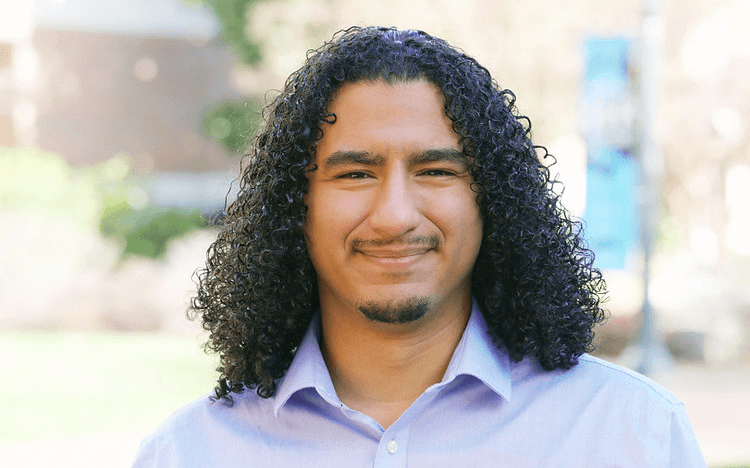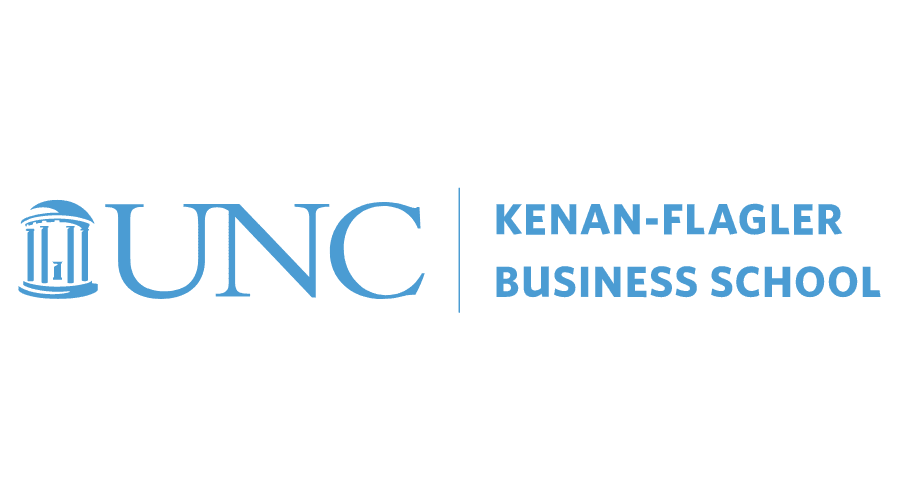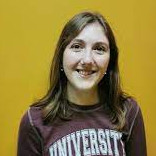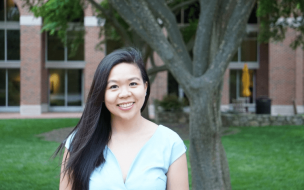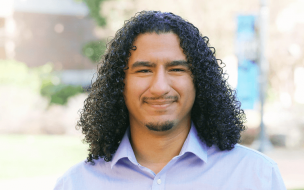Since earning his healthcare MBA from the University of North Carolina (UNC) Kenan-Flagler Business School, Patrick Gomez Menzies has landed a coveted role with pharmaceutical giant, GSK (GlaxoSmithKline).
For as long as he can remember, Patrick has been fascinated by the healthcare industry.
“I think healthcare is really the place where you can see the interaction between science, business, and our society,” he reflects.
This interest led Patrick to a bachelor’s degree in the history of biotechnology, before moving into academic research through a graduate degree in biomedical science at the University of California, San Diego.
Alongside his graduate studies, Patrick spent time consulting for pharmaceutical and biotech companies. He was intrigued by the complex challenges that decision-makers at these organizations faced, and wondered how he could move into similar roles.
“I started to realize that most of the people making decisions in those companies had MBAs, not PhDs,” he explains. This revelation sparked his decision to go to business school.
Joining the Research Triangle
When Patrick first considered an MBA, he thought he’d use it to move into life science consulting, and UNC Kenan Flagler offered ample opportunities in this area. The school’s MBA offers a specific healthcare concentration, which matched Patrick’s interests perfectly.

“UNC has top programs across healthcare, in and outside of business, and really creates a collaborative approach to the complex problems that face our industry,” he explains.
The school’s location, at one corner of the ‘Research Triangle’ in North Carolina, was another draw for Patrick. This area encompasses three major research universities, along with several innovative pharma companies like GSK and Endacea-Technology.
This proximity helped Patrick find plenty of hands-on learning opportunities during his MBA.
He pursued his interest in valuing innovation and startups by undertaking an internship with Cofounders Capital—a local venture capital fund with a UNC Kenan-Flagler alum as a partner.
Another highlight, he says, was participating in UNC Kenan-Flagler’s Student Teams Achieving Results (STAR), a program where student teams develop actionable solutions to solve a complex business problem for a company.
During his consulting project, Patrick and his team worked with GSK to help them re-enter the innovating therapeutic space of oncology.
“They asked for recommendations on what an innovative lean organization in this space would look like,” Patrick explains.
Patrick also had the chance to put this newfound business acumen behind a good cause, when he got involved with UNC Kenan-Flagler’s Nonprofit Board Consultants program. This meant consulting for a local non-profit—the Poe Center for Health Education.
“They’re a non-profit that educates children and parents on healthy living,” Patrick explains. By working with the Poe Center, he saw first-hand the challenges that nonprofits face—and present some solutions.
“We recommended some ways to automate their processes to give them a greater reach in the community,” he recalls.
Developing as a leader
As well as getting to know the business side of healthcare, these experiences offered Patrick some crucial leadership insights, which he further developed back on campus.
One opportunity that really stands out from his time at UNC Kenan-Flagler was taking up the mantle Vice President of Diversity for the MBA Student Association.
“I considered how every student can have a positive business school experience, and leave as leaders who’ll emulate that diverse and positive environment in their future careers,” Patrick says.
As graduation approached, he was keen to find a career where he could keep developing these leadership skills, while making a difference to the lives of patients.
He’d initially planned to find a role in healthcare consulting, but staff at UNC Kenan-Flagler encouraged him to look into management development programs at large organizations.
Healthcare Innovation at GSK
Today he’s in a rotational leadership program with GSK. “I was attracted to the potential to grow within one organization, but still get a breadth of experience,” he notes.
He worked on market access for the launch of a new cancer drug for multiple myeloma and drove strategy for GSK’s US oncology portfolio and companion diagnostics, especially with new technologies in immuno-oncology and cell therapy. Now he is a Venture Lead at Action Potential Venture Capital in Cambridge, Massachusetts, providing commercial and strategic support and advice on future investments to its innovative portfolio companies.
This involves working with small teams, including CEOs and board members, and leading them toward a common goal, skills Patrick believes he picked up at business school.
These are relevant for working at GSK, he says. “At Action Potential, I use a lot of the experience from STAR, Non-Profit Board Consultants and the UNC Venture Capital Internship programs.
“We are still trying to improve the quality of patient lives but our decisions are based on how can we use our limited resources of money and time to drive successful innovation to the market.
"At APVC we are investing in cutting-edge technologies that have the potential to fundamentally change how we think about therapeutics and medicine and how the bioelectronics field is growing and can provide important treatments for chronic diseases. I work with CEOs, Chief Commercial Officers, and Board of Directors to provide information and solutions to support strong decision-making for commercial success of new innovations.
“The collaborative culture at GSK also reminds me of the culture at UNC Kenan-Flagler,” he adds.
Patrick advanced diversity and equity at UNC Kenan-Flagler, and he is committed to continuing that advocacy throughout his career. He serves as the inclusion and diversity champion for GSK’s early talent programs.
Ultimately, Patrick is driven by the difference his work can make to patients’ lives. “At the end of every discussion, we ask how what we’re doing can improve the quality of patients’ lives,” he explains. “Our decisions are based on how can we use our limited resources of money and time to drive successful innovation to the market.”
“I think business school really gave me the skills I needed to have a larger impact than I was having at the bench.”


